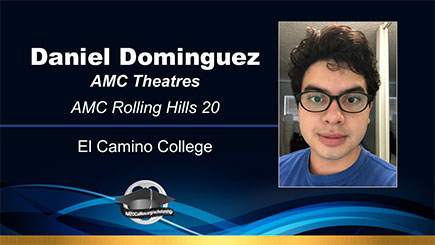|
A Better View for a Vision To me, streaming represents a commodification of my life's calling. Films suddenly are subject to the wills of the stock market; of corporate titans that oftentimes have more capital to spend than entire nations. However, despite all of this vapid change and shift, the theaters have still held strong. Sure, you can build a cutting edge home theater system. But people have realized the value of a cinema. Being immersed into a piece as a community, holding your breath as the opening logos and credits roll, and cheering as triumphs are achieved creates an electric atmosphere that I imagine musicians equate to live concerts. Out of all of these films, the one that I think should be most viewed in a theater, especially now, is Denis Villeneuve's latest masterpiece Dune. Watching Dune not only made me believe in the theater experience again; it gave me faith that Hollywood still has standards of craft and execution. Oftentimes, when people ask me why it is that I am so enamored with film, I find it hard to describe. The metaphor that I tend to reach for is that of a parent and child. A parent's love for a child isn't fiery or romantic, rather, it is seamlessly a part of your life and you can't seem to live without them. You think about their current state, and the thought of living a life without them is unbearable. Except in this case, the relationship is rather interchangeable. Sometimes, I am the parent, as I observe and literally take note (I often use my employee benefits to watch as many films as possible and have filled two journals with notes so far on these films) of what I enjoy and the strategies and techniques used to elicit my enjoyment and emotions. I see where guests are gravitated towards, what defines a film's box office and artistic success, and frown in disappointment when I know that it could have been better. Other times, I am the child. The director shows me a new world, teaching and exciting me about the possibilities of my life and giving me ideas for how I can create masterpieces as they have. In the case of Dune, I felt completely entranced and engulfed in the experience. In fact, I was brought to tears, even though it was not a somber or emotionally-focused film. I cried because I re-experienced the same passion, fascination, admiration and focus that I had experienced for the pre-pandemic films that I saw in theaters. I was reminded of the true magic of cinema. Hans Zimmer's idiosyncratic but grand and epic score, drawing from an archaic and ancient atmosphere, combined with Villeneuve's flawless direction and Greg Fraser's breathtaking cinematography using IMAX cameras, made me scoff at the sound of streaming Dune on HBO MAX on a laptop. To me, that is the equivalent of willingly watching Michael Jordan's Bulls play on ESPN on your 1992 Toshiba Television instead of going to the United Center in Chicago and watching the magic happen courtside. The difference cannot be explained or quantified, simply remembered. The visionary masterpiece that was Dune required the correct lens to view it. The theater allowed for that to happen. Film has often times helped me cope with many battles and reminded me of what I was put on this Earth to do. When I was deeply struggling with depression and spent years without any contact, it was film that reminded me that my life was worth living. When I moved to Los Angeles with my mother with nothing but a backpack of clothes and a smartphone to escape my life on the East Coast, the film capital of the world was there to greet me with open arms. Even recently, with my mother's breast cancer diagnosis and my older sister's mental health crisis that occurred simultaneously, it was the experiences like Dune that kept me hopeful and focused. I want to create works in theaters that inspire the viewers to keep pushing and enrich their lives. I don't want film to become an extension of social media. Film is the next tier of visual art, and should be treated as seriously as the paintings of Da Vinci and Van Gogh have. They help viewers visualize and experience the great struggles and triumphs of humanity (ask yourself, would you really be as horrified by World War 2 having not seen Schindler's List? Or the Rwandan Genocide portrayed in Hotel Rwanda, or nuclear war with Dr Strangelove?). I hope that future generations can enjoy the undeniable magic of a cinematic experience. It is one of the finest luxuries and perks of being human, and truly is a culmination of thousands of years of creative development. |
|
||||||
Copyright ©
2024
NATO CA/NV

